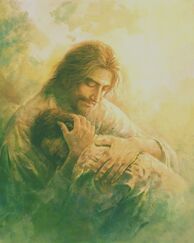PASTOR'S BLOG
Discovering Spiritual Truths & Celebrating God's Grace in the Every Day Happenings of Life.
|
What does it mean when buildings collapse? This question has a harrowing relevance for today—seven days after the collapse of the Champlain Towers condominium in Surfside, Florida. 16 people now confirmed dead. 147 still missing. Families torn apart. Future plans obliterated. Lives destroyed by a terrible catastrophe. The stories and images being reported by the news are heartbreaking for everyone. Although families and rescue workers still cling to hope, that death toll will inevitably rise. More bad news lurks. Then further fallout as blame is cast, justice demanded, and heads start to roll. It is in the face of such shocking tragedies that the questions of ‘why’ arise. Why would God let this occur? Why didn’t He intervene? Why these innocent people? Why do bad things happen to good people? Believe it or not, a strikingly similar event is referenced by Jesus in the 1st century, “… Or those eighteen on whom the tower in Siloam fell and killed them: do you think that they were worse offenders than all the others who lived in Jerusalem?” (Luke 13:4). We don’t know anything more about the event Jesus alludes to. However, the people He spoke to know firsthand what He is talking about.  They were aware of the pain and tears brought on by the untimely, unexpected death of the people in that tower. Now, Jesus was trying to get them to see that such horrible events were not a sign of God’s judgement or wrath. In Jesus’ day, the Jews believed in a cause-and-effect relationship between sin and suffering. They misread such tragic events as signs of God’s punishment on particular sins/people. If one was good and innocent, they could avoid suffering. To put it bluntly, they lived by the “they got what they had coming to them” sort of mantra. Jesus utterly denies this way of thinking. This blasphemy did nothing but paint God in a very inaccurate, unflattering light. It blames Him for all the wrong, for all the tragedy. Jesus wants them to see a bigger picture. Their grief and sorrow is not a sign of God’s punishment, but a moment to return to the Lord to find the healing and comfort only He can give. This was a strange new teaching for the crowds listening. God is a not a vindictive tyrant carrying out repulsive events to create pain and punishment in a sinner’s life. Quite the opposite is true! It is in the hard times that God promises to hold us, “The Lord is good, a refuge in times of trouble. He cares for those who trust in him.” (Nahum 1:7) Instead, of living in fear of God’s wrath when we do anything out of alignment with His will, Jesus corrects our view of God’s sovereignty and our suffering. When this fallen and broken world collides and disrupts our happiness, these are the very moments that should drive us back to the loving arms of the Lord. These are the moments when we return to the Creator. “The righteous cry out, and the LORD hears; He delivers them from all their troubles. The LORD is near to the brokenhearted; He saves the contrite in spirit. Many are the afflictions of the righteous, but the LORD delivers him from them all.” (Psalm 34:17-19) Jesus reveals a proper perspective. The Christian conclusion is not “they must have deserved it.” Contrary to popular secular thought, tragedy does not always strike people because they deserve it. Rather, such events are a result of a fallen world and serve to remind us of our own frailty and need to place our faith and hope in Jesus. In the greater context of Luke 13, Jesus is reminding (warning) that all the people in the crowd are just as guilty as those whose lives were tragically cut short. After all, there are no truly innocent or good people (cf. Romans 3:23). Jesus uses the two tragic events of His day as a teachable moment, a wake-up call to get people’s attention and to call them back to God. He urges them to repent. We may not get the answers to all the ‘why’ questions that surface. We will never know why buildings collapse. We will never know why death comes so harshly. But that is why we should celebrate what we do know. The answer we have to all of life's sufferings in the cross of Jesus--the very place where God Himself suffered most! We look to the cross and know that we can trust in the One who has promised to be with and deliver us. We’ll never understand why God allows bad things to happen. Yet we do know that we live in a fallen world. When disasters happen, it’s a sign that we are no longer living in a world that is a paradise. This life is full of disasters and catastrophes. They are indeed a test of our faith, an opportunity to turn toward God in humility and in loving help toward our neighbor. It is why we live in anticipation of heaven and make ourselves ready by faith. We anticipate the joy of heaven—no more tears, no more tragedy, no more death. Oh what a glorious thing awaits us. This is why we endure the pain of this world with an eye towards the future prize of God (cf. Phil. 3:14).
1 Comment
Barbara & Hank Richter
7/2/2021 04:05:04 pm
Thanks Steve, Well put and needed in today's world. God Bless+
Reply
Leave a Reply. |
AuthorPastor Steve Vera Categories |